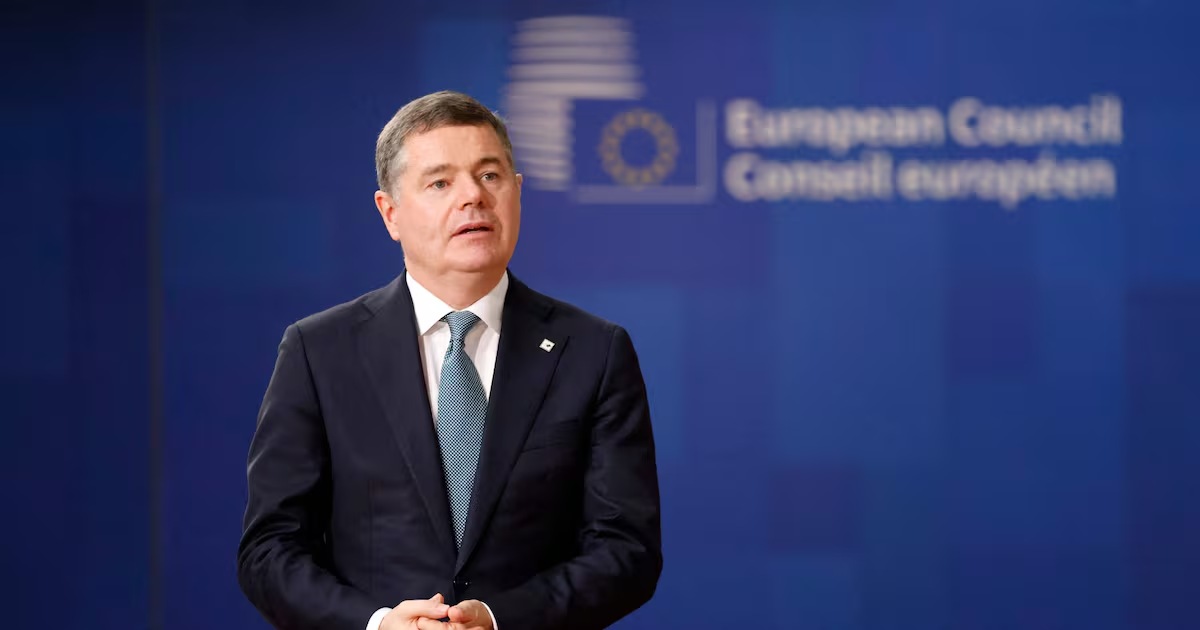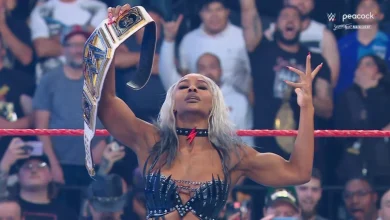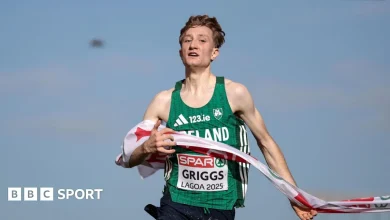Who is Paschal Donohoe? Profile of Minister for Finance stepping down for role at World Bank

Paschal Donohoe’s appointment to a senior position at the World Bank should not come as a surprise, given his name has been linked with a number of global financial institutions in recent years.
In 2024, his name was mentioned as being in the running for the post of head of the International Monetary Fund (IMF), However, Bulgarian Kristalina Georgieva was reappointed for a second term.
Mr Donohoe had been touted as a possible successor for the IMF role and is understood to have held preliminary discussions in 2023 with senior figures in the fund in Washington.
When it comes to his track record as a financial minister, he has been technically proficient and obviously competent. He is seen as slightly cautious and incremental, rather than dramatic, in his decision-making.
His political outlook aligns very much to that of his party Fine Gael – centre right on fiscal policy, liberal in outlook. He has that anomaly that most Irish politicians of the centre and centre-right have: the ‘social’ nature of politics – ie the welfare state – is also an intrinsic part of his make-up.
Allied to that, he is a very polished communicator on a one-to-one level, who has built up an extensive network of political allies and supporters, based on a reputation for being solid, nondramatic, and what-you-see-is-what-you-get.
That is manifested by the high regard in which he is held by finance ministers throughout Europe.
[ Paschal Donohoe to resign and take World Bank role as reshuffle speculation mountsOpens in new window ]
In 2020, he was elected as President of the Eurogroup, the group of finance ministers of the European Union’s 27 States. When Fine Gael and Fianna Fáil forged a coalition in 2020, Donohoe was due to stand down as minister for finance in January 2023, in a rotation agreement with Fianna Fáil’s Michael McGrath.
However, the Government, in an unusual move, nominated Donohoe for a second term. He was successful. It led to the unusual situation where Ireland was the only one of the EU 27 which had two members in the Eurogroup: Donohoe and McGrath, who was now Minister for Finance.
Minister for Finance Paschal Donohoe is standing down from his role in Government. Photographer: Simon Wohlfahrt/Bloomberg
In June this year, Donohoe signalled he would seek a third term as president of the group. That is now moot.
The 51-year old Fine Gael TD was first elected to the Dáil in 2011, after two unsuccessful attempts: the general election of 2007 and the byelection of 2009.
Donohoe grew up in Blanchardstown and attended St Declan’s CBS in Cabra. He won a scholarship to Trinity College Dublin, where he studied politics and economics. He overcame a natural shyness during his time there, becoming the secretary of the Philosophical Society.
Donohoe worked for almost a decade for Procter & Gamble in the UK before returning to Ireland in the early 2000s with his wife, Julie. They settled in Phibsboro with their two children.
One of his motivations in returning to Ireland was to enter politics. He was successful in his first attempt, getting elected to Dublin City Council in 2004, as part of a Fine Gael resurgence in the capital.
He was subsequently selected to stand in the general election for the party – but his constituency was Dublin Central, which had rarely been a happy hunting ground for Fine Gael. It was also the home constituency of then taoiseach Bertie Ahern.
Donohoe fell short in 2007 in his bid to become a TD. He was subsequently elected as a senator.
Paschal Donohoe and leader of Fine Gael Simon Harris. Photograph: Sam Boal/Collins Photos
Then, following the death of the Independent TD Tony Gregory, he contested a byelection in Dublin Central in 2009, but was defeated by Maureen O’Sullivan, who was seen as the successor candidate to Gregory.
He was successful on his third attempt in 2011, as part of a Fine Gael landslide. Donohoe’s promotion under new taoiseach Enda Kenny was not as rapid as some would have thought.
Initially he was not promoted, but following Lucinda Creighton’s departure from the party in 2013, he was appointed as Minister for State in European Affairs.
The following year, a mini reshuffle caused by the resignation of Alan Shatter saw him promoted to the position of Minister for Transport, Tourism and Sport.
After the 2016 election, he was appointed to his first finance portfolio, Minister for Public Expenditure. However, then minister for finance Michael Noonan was ill for some time and Donohoe took over much of his work burden for a period of time.
Some of his traits were obvious then: he was an absolute loyalist and was never off-message, unlike some of his more ambitious colleagues of a similar age.
When Kenny resigned, Donohoe’s name was mentioned as a possible successor but he quickly threw his weight behind Leo Varadkar. He became Minister for Finance in 2017.
In one of the two finance guises, therefore, he has now delivered 10 budgets in a row.
The 2016 election was a very difficult one for Donohoe, whose seat looked in peril for much of the race. The issue came back to bite him in 2023 when it was disclosed a businessman and supporter, Michael Stone, had employed six men and hired a van to erect posters for Donohoe.
Paschal Donohoe and Jack Chambers. Photograph: Sam Boal/Collins Photos
Donohoe admitted he had failed to declare the net cost of the assistance, amounting to €1,057, to the Standards in Public Office, as was required. He apologised to the Dáil and also faced a motion of confidence.
It was thought that Donohoe might be interested in succeeding Varadkar as party leader in 2024, but Simon Harris moved so quickly and so decisively in the succession race that all potential rivals were blindsided.
It is not known if Donohoe had considered the role. By that time, in any instance, it was clear that he was interested in a possible international position.
In the past two years, he has been the person who has driven the retreat from one-off Budgetary measures, arguing in 2025 they were not sustainable and did not align with good fiscal policy. He was also adamant that the windfall from Apple would be used to form the core of two long-term rainy day funds. They could form an integral part of his political legacy in Ireland.
Donohoe has been seen as a person who has given Fine Gael much of its ideological and intellectual ballast over the past decade. As far back as 2016, he said that minority governments and unusual combinations of parties would be part of the political fabric from now on.
Volatility would be the new norm in Irish politics, including coalitions of multiple parties, he said at the time.
“The form of government here has become the norm in other European countries. This might not become the normal form of government here, but can certainly become more frequent than governments we had in the past,” he said.
[ Donohoe’s departure is a huge blow to the coherence of the CoalitionOpens in new window ]
Presciently, he predicted that politics would no longer be defined by the old left-right dichotomy. The choice in future would be between centre parties advocating stability as well as incremental change, with radical forces from the left and right seeking to “disrupt” the system.
Away from politics, he spends a lot of time with his family and lives modestly.
He is a voracious and eclectic book reader and has been a regular reviewer for The Irish Times.
He is also a huge music fan. His favourite album of all time, he wrote last year, is Fisherman’s Blues by The Waterboys.
[ In pictures: Paschal Donohoe through the yearsOpens in new window ]





